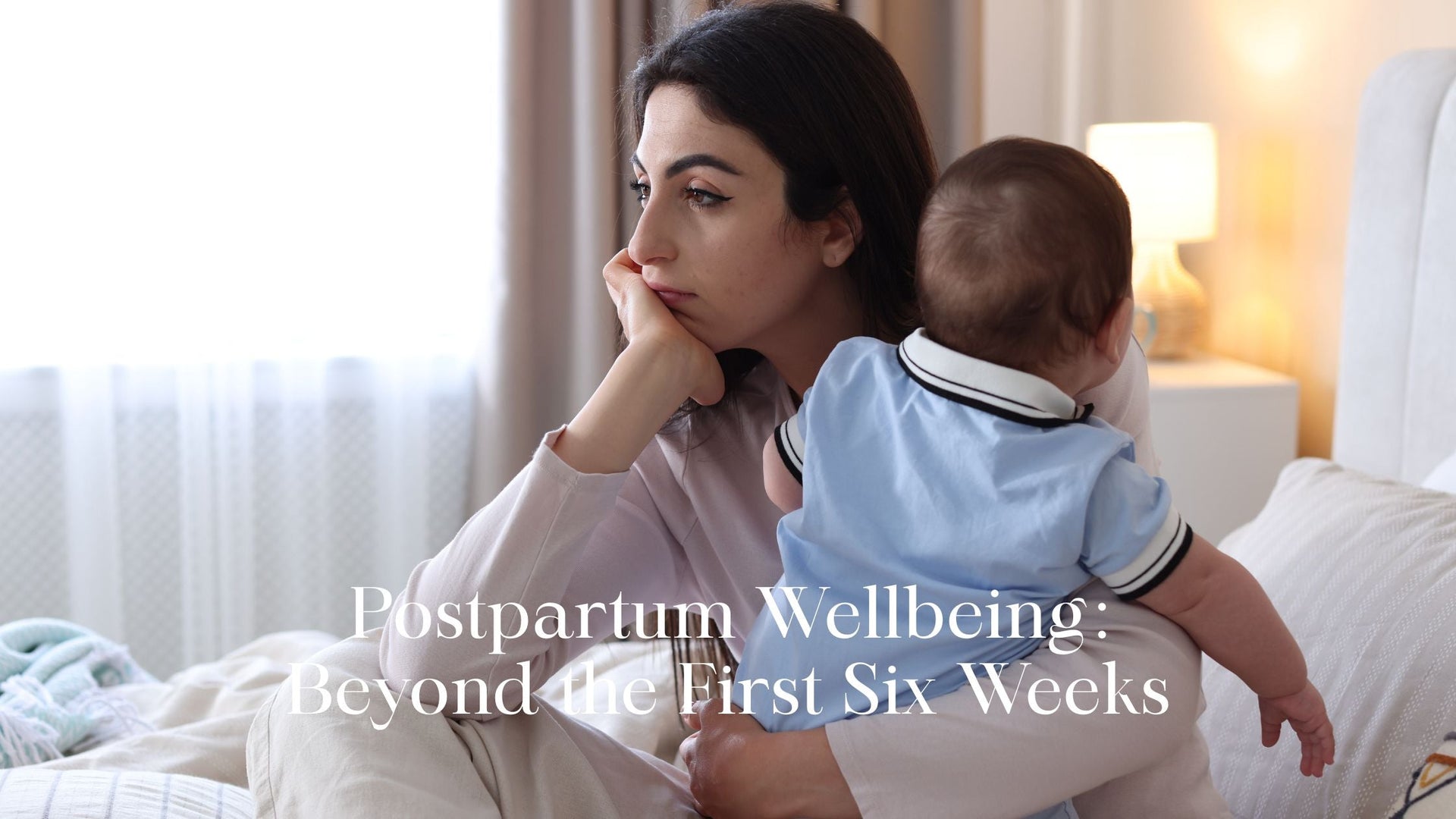Postpartum Wellbeing: Beyond the First Six Weeks
When people hear the word postpartum, many imagine a short recovery period, six weeks after birth, marked by the first doctor’s check-up. But the truth is that postpartum is not defined by a strict timeline. For some mothers, it lasts months or even a year or longer, as the body, hormones, emotions, and identity continue to shift in profound ways.
Postpartum wellbeing is about more than physical recovery. It’s a layered process that involves maternal mental health, emotional adjustment, self-care, and the reshaping of identity as you step into motherhood. Let’s explore what this journey really looks like, what challenges can arise, and how to nurture yourself through it.
How Long is the Postpartum Period?
There is no one-size-fits-all answer to how long postpartum lasts. While medical guidelines often consider the six-week check-up as a milestone, many experts recognize that recovery extends well beyond this. Postpartum may last up to 12 months or longer depending on factors like breastfeeding, hormone changes, and emotional adjustment.
Important note: Postpartum is under-researched. More studies are needed to fully understand how long physical recovery, hormonal regulation, and emotional transitions truly take.
Postpartum Mental Health: Baby Blues vs. Depression and Anxiety
It’s common to experience the baby blues—mood swings, irritability, or tearfulness that usually fade within two weeks. These are linked to rapid hormonal changes after birth.
But when heavy feelings last longer, mothers may be experiencing postpartum depression (PPD) or postpartum anxiety. Symptoms can include:
-
Persistent sadness or hopelessness
-
Overwhelming worry or fear
-
Intrusive thoughts
-
Difficulty bonding with the baby
If you notice these symptoms, know that you are not alone. Reaching out to a therapist, doctor, or support group can provide the care you need.
Hormones and Breastfeeding
Breastfeeding and hormones are deeply connected. Nursing stimulates oxytocin, a hormone that strengthens the bond between mother and baby—but it can also make mothers feel extra tired.
Breastfeeding also increases your body’s energy needs:
-
Burns around 500–700 calories per day
-
Requires an extra 400 calories daily for proper nourishment
For some mothers, breastfeeding is fulfilling and empowering. For others, it can feel overwhelming or even draining. Formula feeding or mixed feeding are equally valid choices. What matters most is that your baby is fed and you feel supported.
The Importance of Support Systems
A strong postpartum support system is essential. Motherhood should not be a solo journey. Partners, family, friends, nannies, doulas, and therapists can all provide invaluable support. Whether it’s help with night feeds, cooking a meal, or simply listening, shared responsibility makes the postpartum transition smoother.
Remember: Asking for help is a strength, not a weakness.
Postpartum Identity: Who Am I Now?
Many mothers ask themselves: “Who am I now?” The transition into motherhood often reshapes identity. While your role changes, your core values and personal essence remain.
A helpful self-reflection exercise:
-
Identify your top three values.
-
Ask: Am I living true to these values?
-
Explore small actions to stay aligned with them.
Motherhood adds a new chapter—but it doesn’t erase your story.
Mom Guilt and the Role of Self-Care
Mom guilt is one of the most common challenges new mothers face. It often sounds like: “Am I doing enough?” or “Am I doing it right?”
The antidote? Self-compassion and self-care. And no, self-care is not selfish—it’s survival.
Examples of postpartum self-care:
-
Taking a nap when the baby sleeps
-
Eating full, nourishing meals (not just leftovers)
-
Going for a short walk outside
-
Journaling or meditating
-
Saying yes to help and no to unnecessary stressors
When mothers prioritize their wellbeing, they also strengthen their capacity to care for their babies.
Final Thoughts on Postpartum Wellbeing
The postpartum period is not a neatly defined stage but a complex, ongoing transformation. It weaves together physical recovery, hormonal changes, emotional resilience, and identity growth. Every journey is different—and that’s okay.
By opening conversations, supporting one another, and prioritizing maternal mental health, we can normalize the challenges of motherhood and celebrate its joys without guilt or silence.
If you are in your postpartum journey: You are not alone. You are enough. And your wellbeing matters.





